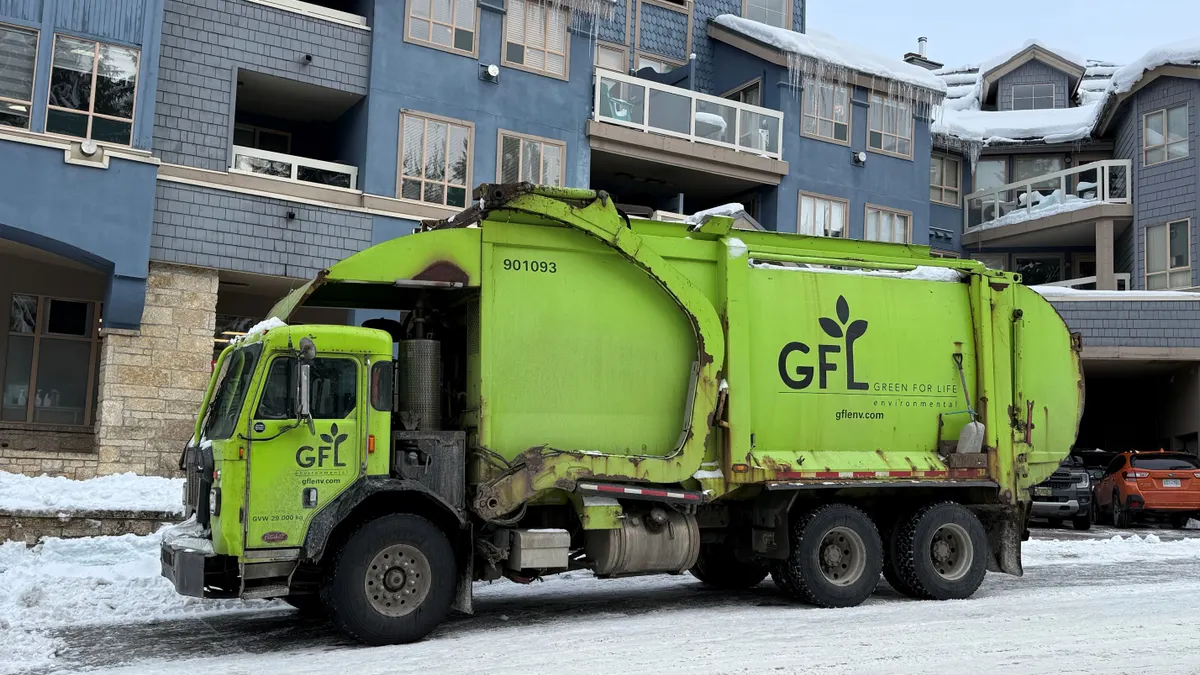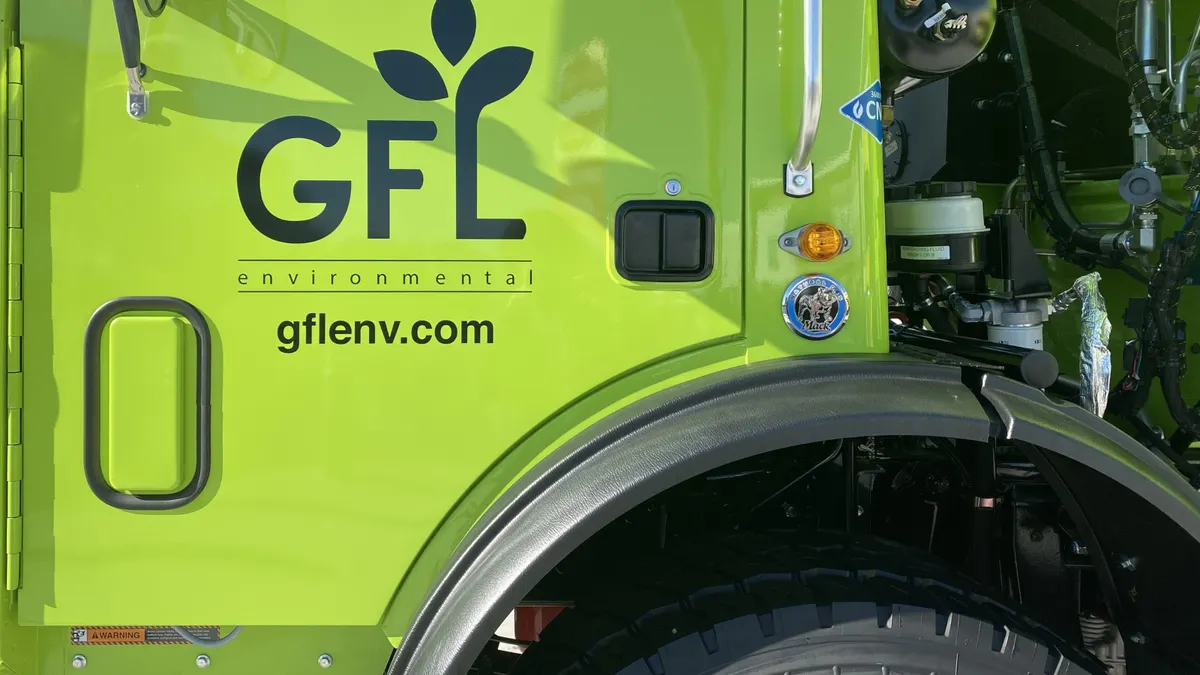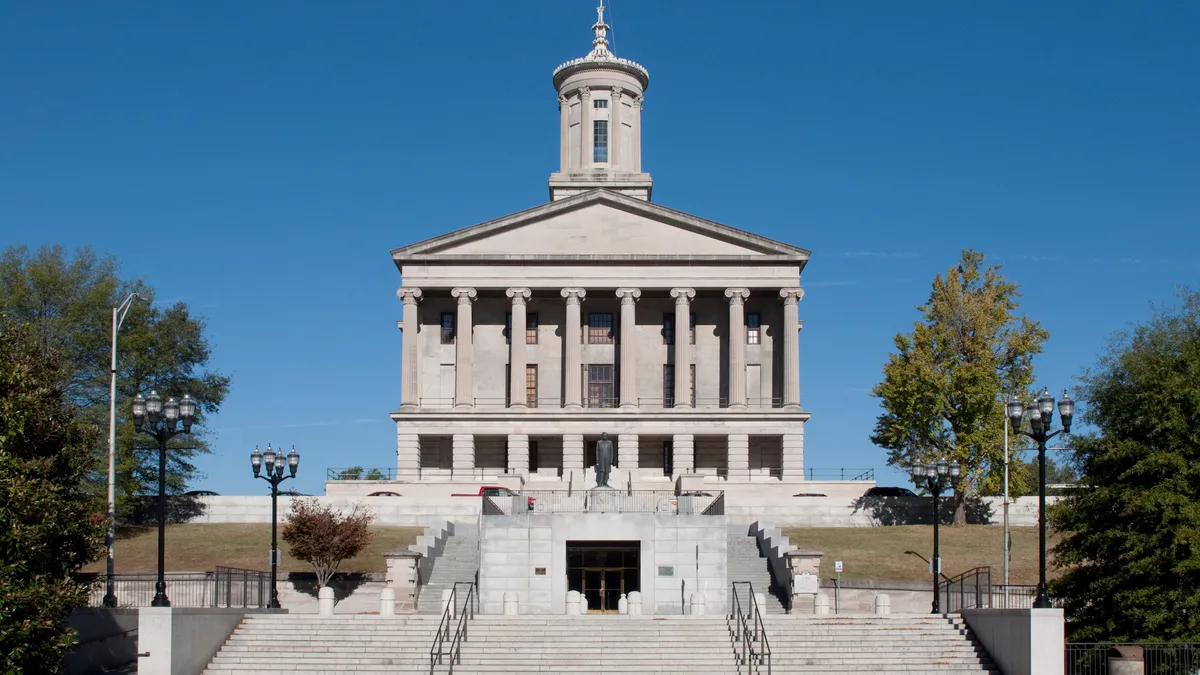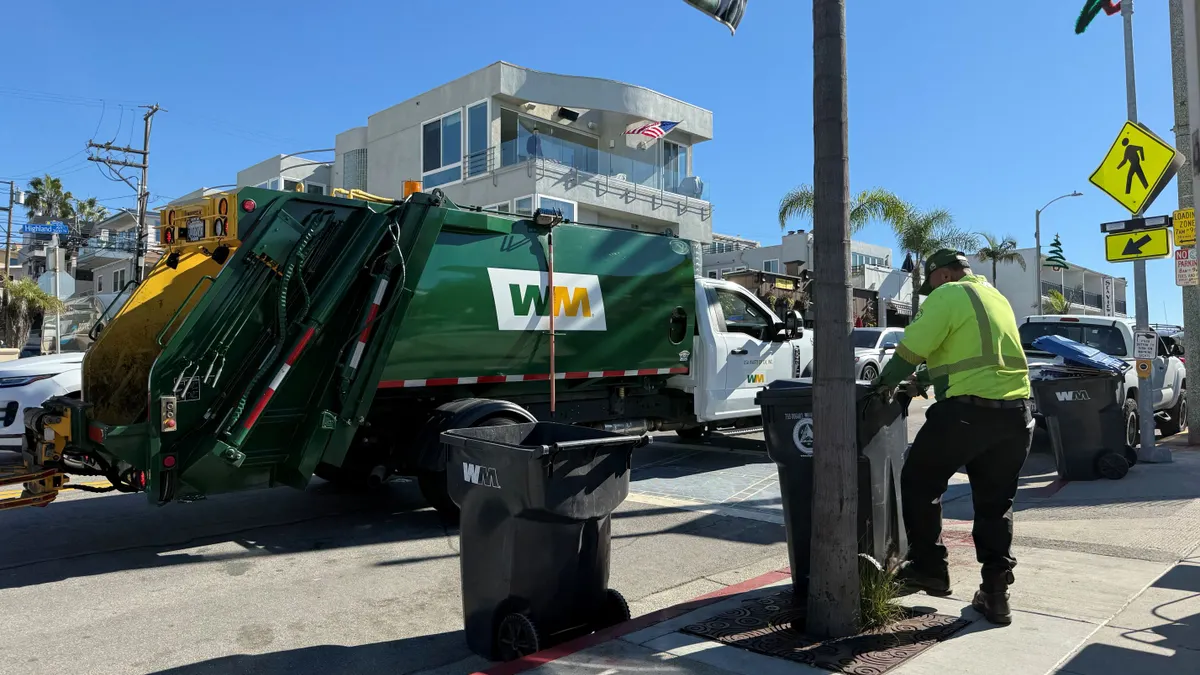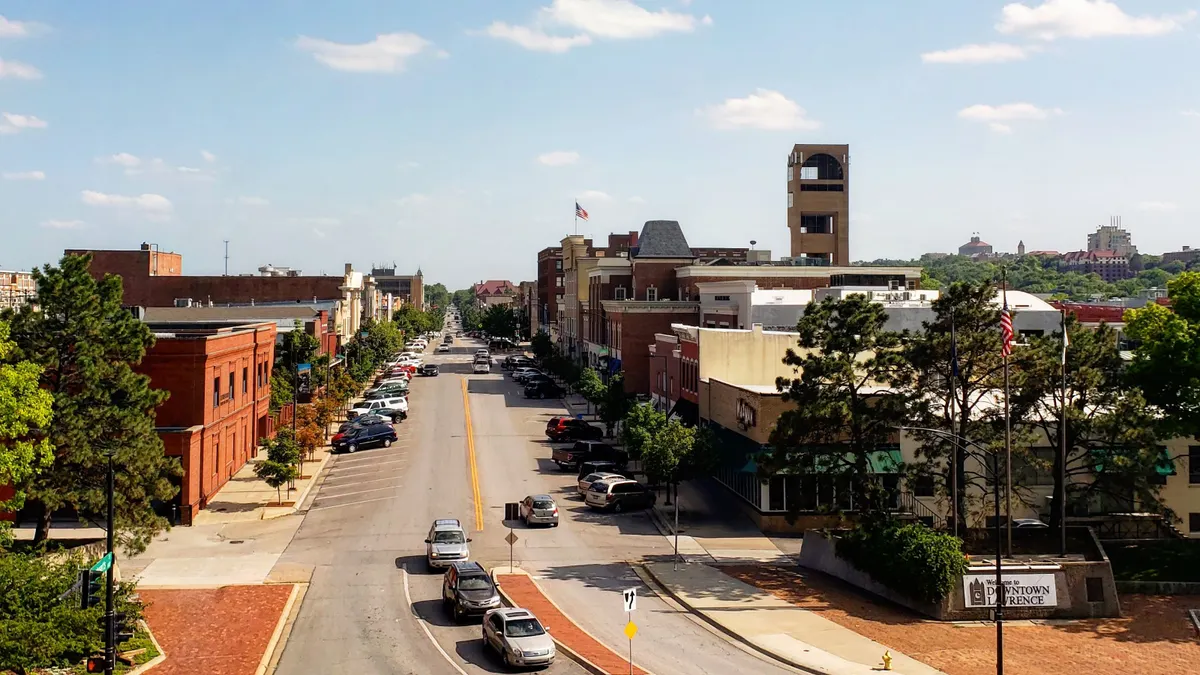Battery recycling efforts at the state and local level, as well as private company efforts, continue in North America this summer.
Notable new projects and regulations aim to streamline recycling programs, make recycling less confusing for residents and more efficiently funnel critical materials into domestic supply chains.
Here’s a roundup of recent battery recycling news. What battery recycling trends and news are you tracking? Let us know at waste.dive.editors@industrydive.com.
Princeton NuEnergy opens black mass recycling facility in South Carolina
Princeton NuEnergy, a lithium-ion battery recycling and cathode manufacturing company, said last week its advanced black mass recycling production facility in South Carolina is now fully commissioned and operational.
PNE says the flagship facility is the first commercial-scale advanced black mass and battery-grade cathode active material production facility in the country. The facility is part of PNE’s goal to recycle and produce critical battery minerals in the U.S., especially as federal policy focuses more on establishing domestic energy production and supply chains, the company said in a statement.
The facility, located in Chester, South Carolina, has a 5,000 metric tons per annum capacity and mainly produces “high-purity” black mass from manufacturing scrap. In 2026, the company expects to expand capacity to 15,000 tpa, with the capability to scale up to 50,000 tpa “as market demand grows,” PNE stated. PNE says the operation can achieve a recovery yield of over 97%.
"In Chester, we demonstrate that the United States can lead in battery materials recovery and manufacturing — not years from now, but today," said Chao Yan, PNE's co-founder and CEO. “This facility is our next major advancement in the battery supply chain space."
PNE also operates a joint pilot facility with Wistron GreenTech to recycle lithium-ion batteries in McKinney, Texas.
PNE’s work is funded by $55 million in grants, along with strategic and venture funding and support from companies such as Honda, LKQ Corp., Samsung, Shell Ventures and Wistron Corporation. In 2022, it received a $12 million grant from the U.S. Department of Energy.
Washington seeks public comment on battery EPR law rollout
Washington’s Department of Ecology is seeking public comment on the state’s battery stewardship program.
The law, passed in 2023, is meant to reduce fire danger at waste facilities and increase recycling rates. It requires battery producers to fund and participate in an extended producer responsibility program. It also establishes labeling requirements for batteries sold in the state.
The proposed rule includes details on recycling goals and performance targets, collection and management standards, reporting requirements and an outline of fees, according to the Department of Ecology.
The public comment period is open through Sept. 10. Two virtual public hearings are also scheduled for Aug. 28 and Sept. 3.
The law requires producers selling portable batteries or battery-containing products to participate in the stewardship organization starting Jan. 1, 2027, for portable batteries and Jan. 1, 2029, for medium-sized batteries.
Most kinds of batteries are included in the law, but some exceptions include medical device batteries, EV batteries and batteries that are not designed to be easily removed from items.
Washington already has other stewardship programs for paint, electronic products, photovoltaic solar panels and mercury-containing light bulbs. The state passed an EPR for packaging law in May.
Canada’s Call2Recycle, Circular Materials join forces on battery recycling education
Circular Materials, the producer responsibility organization for numerous EPR programs in Canada, recently partnered with Call2Recycle Canada to streamline public awareness campaigns for recycling batteries and other materials.
The two groups said they will “be aligning communication efforts, sharing best practices and amplifying promotion and education initiatives,” particularly around the country’s ongoing Recycle Your Batteries, Canada! program for household and e-bike batteries. Call2Recycle Canada launched the public awareness campaign in 2024.
The partnership aims to drive higher battery recycling rates by streamlining messaging about how to properly recycle batteries, a move meant to avoid battery fires, the groups said.
“We know that education is key to ensuring batteries are recycled safely through one of our 15,000 collection sites, and that they don’t end up where they shouldn’t, like in blue boxes. Our partnership with Circular Materials helps amplify that message,” said Joe Zenobio, president and CEO of Call2Recycle Canada, in a statement.
Canada has numerous battery recycling programs across its provinces and territories, including in British Columbia, Saskatchewan, Manitoba, Quebec and Prince Edward Island. Call2Recycle is a registered PRO for Ontario’s battery recycling program.
Other news:
- Recruiting sports fans for battery recycling: Batteries Plus and the Green Bay Packers say the battery recycling initiative they created last year could be a model for other sports teams. The project encouraged football fans to drop off used batteries at Batteries Plus stores in exchange for entries to win Packers-related prizes and experiences. (Recycling Today)
- Estimating battery recycling’s economic impact: Demand for efficient recycling strategies for lithium-ion batteries is growing in the U.S. and around the world, but companies that build recycling systems for the batteries often leave out important budgeting considerations, which in turn “misrepresent the economic potential of emerging technologies,” according to a new study. Future cost models should provide full documentation including key logistics and transport costs and take into account project scale and region, researchers said. (Nature)
- Battery EPR offerings: Battery recycler Cirba Solutions says it has added battery management services tailored to the growing number of EPR programs in the U.S. Such offerings include tracking and reporting capabilities and end-of-life management support.
- Curbside battery collection: The City of Portland, Oregon, says it has collected more than 20 tons of household batteries for recycling in the first year of its curbside battery collection program.








